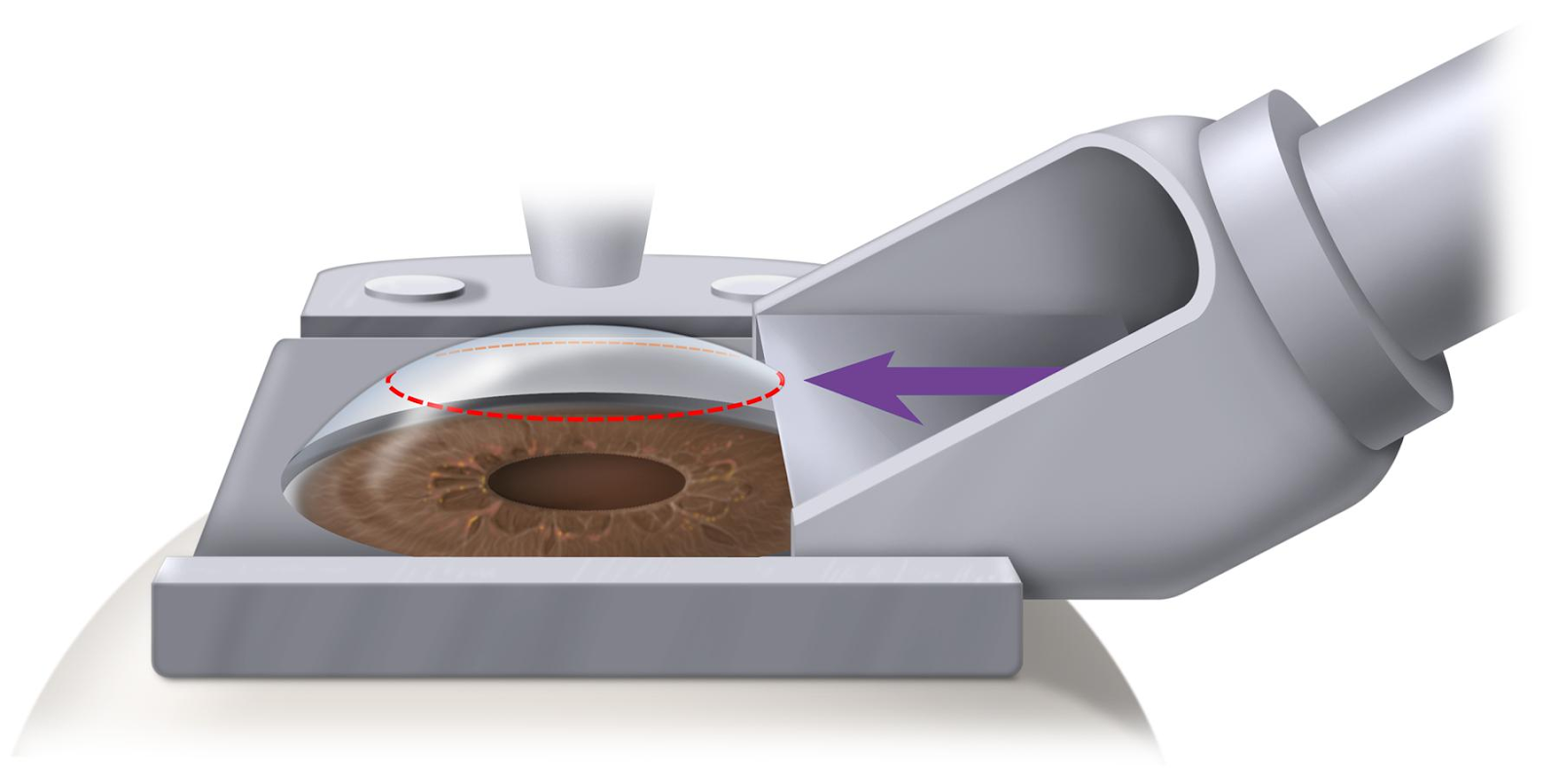Lasik surgery is a laser eye treatment that uses a laser beam either from an excimer laser or a femtosecond laser. The excimer laser modifies the refractive condition of the eye. This process removes tissue from the anterior cornea, a procedure known as photoablation breakdown.
The excimer laser’s ultraviolet radiation eliminates chemical connections in the cornea. This happens without inflicting heat damage on surrounding corneal tissue. When you undergo Lasik surgery, repairs eye conditions such as astigmia, blurred vision, and myopia. Also, it can serve as an alternative to glasses or contact lenses.
Following specific instructions after LASIK eye surgery is critical for proper healing. These may include avoiding certain activities and items that may aggravate or worsen your post-operative discomfort.
It is not recommended to rub your eyes after LASIK laser eye surgery because it may disturb the corneal flap generated during the procedure, potentially leading to issues.
Lasik refractive surgery is one of the most popular laser vision correction processes among other laser eye surgery procedures.
Water
Water might make the healing process more difficult following LASIK surgery since your eyes are extremely sensitive. As a result, your doctor will urge you to avoid swimming, showering, and other activities that may aggravate them in the days following LASIK eye surgery.
Take your time if you desire to swim, and utilize the lubricating drops for comfort. Goggles may be worn if swimming is your plan. But it is advisable to abstain.
Sunglasses are another excellent technique to protect your eyes from UV rays, which can cause vision loss. This is a good idea at any time of year, but it is especially crucial after LASIK treatment.
The sun can irritate your eyes, making them more vulnerable to discomfort, redness, and inflammation. Furthermore, it may cause transient eye dryness. You can read more about Laser eye surgery, LASIK Pros, and Cons: Are the Risks Worth the Cost? by visiting https://womensrightsandhealth.org/laser-eye-surgery-lasik-pros-and-cons-are-the-risks-worth-the-cost/
Dust and pollen might hurt your eyes, especially if you’ve recently had LASIK. They can also cause allergic responses and increase the likelihood of infection.
Avoid regions where there is a lot of dust and grime. Furthermore, keeping your home clutter-free during the LASIK healing time might help reduce dust formation.
Another thing that can be done to protect your eyes is to avoid situations where there is a lot of smoke because it can irritate them. Furthermore, avoid applying makeup that may irritate your eyes and make them more prone to infections.

Sunlight
One of the primary benefits of LASIK is that it enhances vision. Focusing light on your retina without blocking it corrects refractive defects such as nearsightedness, farsightedness, and astigmatism.
However, this does not preclude you from engaging in outdoor activities. It is preferable to shield your eyes from UV rays by wearing sunglasses.
Patients who have had LASIK frequently report feeling hypersensitive to light for a brief period after the treatment. This is perfectly normal and will pass in a few days.
When going outside, it is critical to wear sunglasses to protect your eyes from UV rays. Without protection, the sun’s harsh rays can cause irreversible damage and eventually impair vision.
To reduce these risks, it is suggested that you follow the following guidelines after LASIK:
Do not apply eye cream to your eyes for at least one week after your procedure. This reduces the possibility of unintentional harm to your cornea flap from foreign particles in your eyes or infection. Keep tap water away from your face for at least a week, and avoid swimming, whirlpools, and saunas for two weeks after that, as these may contain chlorine or other chemicals that can affect your vision.
Dust
It is critical to take proper care of your eyes after LASIK. Avoid anything that can anger or complicate them.
Avoid spending time in a hot tub with chlorine or other chemicals that might cause dryness and irritation in your eyes.
Avoiding these scenarios can help prevent dry eye syndrome and other potential LASIK adverse effects. If you have water in your eyes following surgery, use extra artificial tears and tell your doctor immediately if any changes occur.
Cleaning your home regularly is vital to preventing dust buildup. This is especially true if you have allergies; thoroughly cleaning before the end of allergy season will help eradicate any allergens that may still be floating around in the air.
Maintaining contact lenses clean and clear of dirt, dust, and pollen when wearing them is critical. Less inflammation in your eyes throughout the spring and fall allergy seasons can bring more comfort.
Furthermore, not touching your eyes after LASIK can lower the likelihood of bacteria entering your eyes and lengthen recovery time. This could delay healing and increase your chances of developing an infection.

Pollen
Pollen in the eyes is typical during allergy season, especially if you wear contact lenses. This happens because you need to touch your eye multiple times a day while inserting or removing contacts; pollen can cause extreme irritation and discomfort if this happens.
As a result, it is advised to avoid wearing contact lenses during the first few days following LASIK. The fewer pollen and other allergens in your eye, the faster you will heal after LASIK and feel much better during allergy season.
Also, avoiding dust and other allergies during the healing phase following LASIK is best. It will keep your eyes healthy and lower your chances of getting an infection during that period.
Finally, avoiding swimming and hot tubs for a few weeks after LASIK surgery is best. Because of the chlorine concentration, these activities may hurt your eyes.
It is advised to avoid any physical activity, especially sports, during the early healing phase. Sweat from these activities can transport bacteria that can cause infections, so avoid them for at least a few days following your surgery.
Makeup
Makeup, moisturizers, fragrances, and lotions should not be worn for the first week following LASIK surgery. These materials may irritate your eyes, impede their healing, and transport bacteria into your eyes, potentially leading to infections.
It is advised to avoid any vigorous activity for at least one month after LASIK. Exercising too excessively may cause your eyes to enlarge, itch, and cause irritation and pain.
Your eye doctor will complete an exam before LASIK to detect any problems or conditions that could affect the outcome. This includes determining the shape and thickness of your cornea, as well as your refractive error (hyperopia, myopia, and astigmatism) and the tear film on the surface of your eyes.
During the exam, avoid rubbing or touching your eyes since this may irritate the surface of your cornea and lead to infection. Also, rubbing may grab particles or dust within the cornea.
Throw away any old makeup you have before having LASIK surgery since it can be a breeding ground for bacteria that could migrate into your sensitive eyes. Additionally, acquiring fresh cosmetics after the treatment helps to reduce these dangers.
LASIK patients are advised not to wash their hair or shower for at least 24 hours following surgery. Water is an excellent breeding ground for microbes and germs, and washing your hair may further dry out your eyes and exacerbate any dryness you already have.
Swimming in the ocean or any salty or chlorinated body of water is not recommended for at least two weeks after your surgery. Baths, hot tubs, and saunas should be avoided because they might cause eye infections and irritation.
Your eyes are quite sensitive after LASIK. To keep them safe, keep them out of the sun and wind, and avoid any other potential irritants in your view. Wearing goggles with a magnetic catch attachment for increased security is the best way to do this; wear these for at least a week after surgery to ensure they stay securely on. This will ensure the best possible glare-free eyesight.


